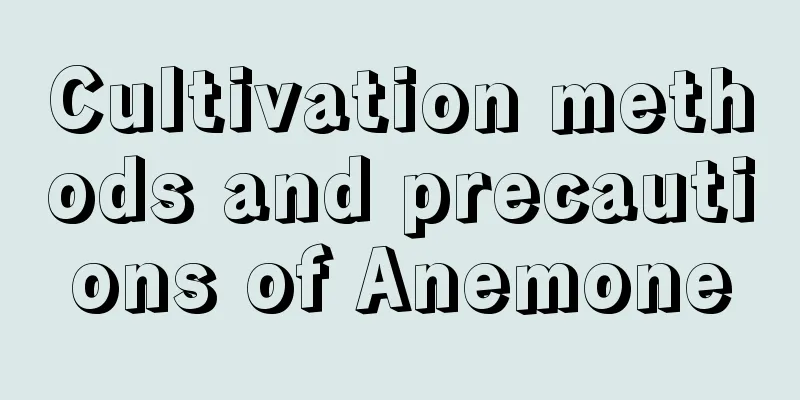Cultivation methods and precautions for pine trees

1. Maintenance methods1. Substrate selection: It has no strict requirements on soil, has strong adaptability, and can tolerate barrenness. It is best to choose loose, fertile, well-drained, slightly acidic sandy loam. 2. Light management: Most of them like light and have weak shade tolerance. If they are kept in a dark environment for a long time, it will easily lead to a sparse crown. Therefore, when cultivating them, they should be given sufficient sunlight as much as possible to facilitate their healthy growth. 3. Water management: Its leaves are narrow and the cuticle is well developed, with a xerophytic structure, so it is drought-resistant and can endure water shortage without being harmed. It can grow in arid environments with shallow soil and many rocks. Excessive water content in the soil is not conducive to its growth. Attention should be paid to drainage to avoid waterlogging. 4. Temperature management: It is a famous pioneer tree species with strong adaptability to environmental temperature. It is cold-resistant and heat-resistant, and can thrive in both high and low temperature environments. 2. Breeding techniques1. Reproduction method: It can be propagated by sowing or cutting. Among them, the sowing method is to store the seeds in the sand in winter to germinate, cover the sand pile with straw mats, pay attention to keeping warm and preventing frost, and keep the environment ventilated. When about half of the seeds have cracks in the next year, they can be sown. 2. Transplantation method: The transplantation method varies depending on the type of seedlings. Container seedlings have a higher survival rate because they are covered with soil, which can protect the roots of the plants from being damaged during the transplantation process. The roots of bare-root seedlings are relatively easily damaged, so you need to pay attention to protecting the roots during transplantation. 3. Problem diagnosis and treatment1. Yellowing leaves: If the needles turn yellow due to water loss, be sure to check whether there are signs of longhorn beetle parasitism. Once discovered, the diseased trees must be manually cut down and removed in time to prevent the longhorn beetles from spreading and harming the trees. 2. Pests: The more common pests include red spider mites, large bagworm moths, red wax scale insects, etc. Once found, they should be sprayed with insecticides in time. IV. Other issues1. Meaning: The tree has a vigorous and majestic posture, a tall and long-lived shape, and a long history and culture. It is regarded as a symbol of firmness, chastity, and longevity. Together with plum and bamboo, it is known as the "Three Friends of Winter". It has the tenacity to overcome adversity and difficulties. 2. Toxicity: It is non-toxic. Pine wood is generally used as industrial raw material. The pine resin can be used to extract rosin. The seeds and pine needles of some varieties can also be used as medicine, which is of great practical value. |
<<: Cultivation methods and precautions of Tia
>>: Planet breeding methods and precautions
Recommend
How to cultivate Sansevieria truncatum
1. Breeding methods 1. Soil: There are not too ma...
What to do if the leaves of Magnolia grandiflora turn yellow
The yellowing of Magnolia grandiflora leaves is d...
Why do the leaves of green radish turn yellow?
1. The temperature is too low Reason: Pothos is n...
Disease and Pest Control of Rhododendron australis
Main diseases Leaf swell There are three main dis...
How to plant glass jade? Planting time and method
Glass Jade Planting Time Glass Jade is best plant...
What is the reason for the dry leaves of gardenia
1. Strong sunlight Reason: If the gardenia is exp...
How to save seeds of Danish wind chimes
1. Choose the variety When keeping seeds for Dani...
Flowering period of common wedding flowers
1. Rose Roses are a type of flower belonging to t...
What vegetables are suitable for growing under the shade of trees? Vegetable varieties suitable for growing under the shade of trees
There is less sunlight under the shade of trees, ...
What to do if the mimosa withers
Reducing the sources of mimosa wilting When growi...
How to grow hydroponic plants more vigorously
Hydroponics is a new type of indoor soilless cult...
How to grow eggplants big and healthy (the best way to grow and manage eggplants for high yields)
How to make eggplant grow big and good Many peopl...
When is the best time to harvest mugwort? How many times a year can it be harvested?
The harvest of mugwort needs to follow the princi...
How to water the fragrant vine in summer
1. Watering time Because the sunlight is very str...
Can magnesium sulfate be used as fertilizer?
Magnesium sulfate as fertilizer Magnesium sulfate...









